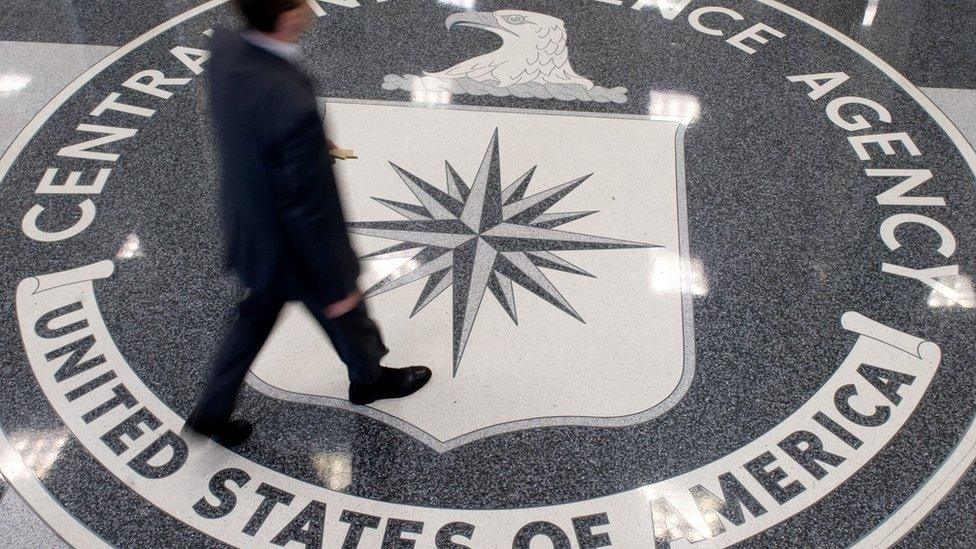CIA’s recruitment campaign hits a bump with bad grammar
- Published

The CIA is trying to promote its work and recruit new people
The CIA has started a new recruitment campaign and will soon have an Instagram account. But as they've discovered, operating in the open is not always easy.
The CIA is looking for new hires, especially those who speak Russian. With that goal in mind, they put recruitment posters, including one written in Russian, in Washington subway stations. The Russian-language advertisement informed people - and potential recruits - that their language abilities are crucial to the security of the United States.

At CIA headquarters, officials have been discussing Instagram
"Your mastery of foreign languages," said the CIA poster, external, is "vitally important to our national security."
The recruitment posters are part of the agency's larger effort to expand its reach in the US and promote its work. The CIA already has a Twitter account, external with 2.58m followers.
Besides Twitter and the recruitment posters, the CIA will soon have its own Instagram account.
"Our office of public affairs is getting ready," said Director Gina Haspel recently at Auburn University in Alabama, according to Verve, external.

CIA Director Gina Haspel has spoken about their work on social media
These efforts are a departure for an agency that specialises in "black operations".
As their Twitter bio says, CIA operatives "go where others cannot go". Their endeavours include - allegedly - espionage, spy-recruitment and other work that is done in a clandestine manner.
Operating out in the open, whether looking for new recruits or otherwise, carries risk. Once your work is exposed, so are your mistakes. As it turned out, the recruitment poster had a grammatical error.
Words were garbled during the translation from English to Cyrillic, and the syntax in the poster was wrong. The poster had "a glaring mistake", as Russia's state-financed media outlet RT gleefully reported, external.
The mistake was a subject-verb agreement issue - the sentence on the poster was written partly in English and partly in Russian. The first part of the sentence included a noun - "your mastery of foreign languages" - and appeared in Russian. The second part of the sentence included a verb - "are vitally important to our national security" - and was written in English. In fact, the verb should have been "is" - not "are".
Still a misalignment between subject and verb is a common mistake in either language. The sentence that appeared on the CIA poster was "just a little bit wrong," as Sergei Goryashko, a reporter for BBC Russian, points out.
Social media users pounced, however, and pointed out the error, external.
Allow X content?
This article contains content provided by X. We ask for your permission before anything is loaded, as they may be using cookies and other technologies. You may want to read X’s cookie policy, external and privacy policy, external before accepting. To view this content choose ‘accept and continue’.
CIA officials do learn from mistakes (at least public ones). The text in the CIA poster was changed, and a corrected version of the poster was spotted in the subway station. As @RussiawithoutBS, external reported: "They fixed it!"